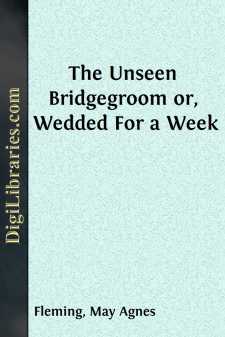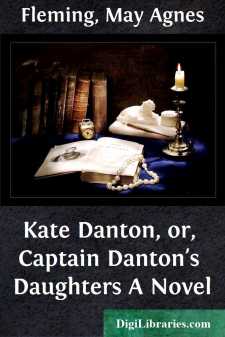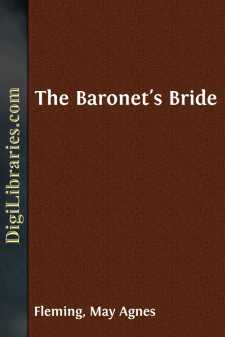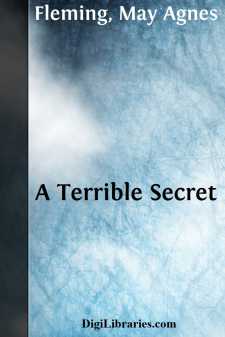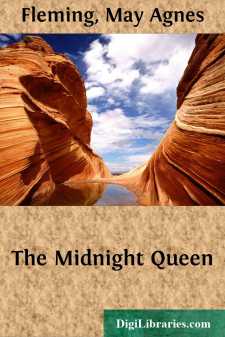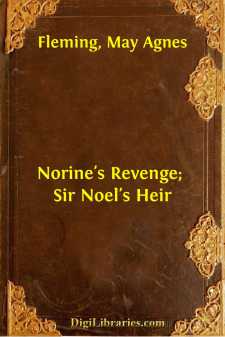Categories
- Antiques & Collectibles 13
- Architecture 36
- Art 48
- Bibles 22
- Biography & Autobiography 813
- Body, Mind & Spirit 142
- Business & Economics 28
- Children's Books 14
- Children's Fiction 11
- Computers 4
- Cooking 94
- Crafts & Hobbies 4
- Drama 346
- Education 46
- Family & Relationships 57
- Fiction 11829
- Games 19
- Gardening 17
- Health & Fitness 34
- History 1377
- House & Home 1
- Humor 147
- Juvenile Fiction 1873
- Juvenile Nonfiction 202
- Language Arts & Disciplines 88
- Law 16
- Literary Collections 686
- Literary Criticism 179
- Mathematics 13
- Medical 41
- Music 40
- Nature 179
- Non-Classifiable 1768
- Performing Arts 7
- Periodicals 1453
- Philosophy 64
- Photography 2
- Poetry 896
- Political Science 203
- Psychology 42
- Reference 154
- Religion 513
- Science 126
- Self-Help 84
- Social Science 81
- Sports & Recreation 34
- Study Aids 3
- Technology & Engineering 59
- Transportation 23
- Travel 463
- True Crime 29
The Unseen Bridgegroom or, Wedded For a Week
Description:
Excerpt
THE WALRAVEN BALL.
A dark November afternoon—wet, and windy, and wild. The New York streets were at their worst—sloppy, slippery, and sodden; the sky lowering over those murky streets one uniform pall of inky gloom. A bad, desolate, blood-chilling November afternoon.
And yet Mrs. Walraven's ball was to come off to-night, and it was rather hard upon Mrs. Walraven that the elements should make a dead set at her after this fashion.
The ball was to be one of the most brilliant affairs of the season, and all Fifth Avenue was to be there in its glory.
Fifth Avenue was above caring for anything so commonplace as the weather, of course; but still it would have been pleasanter, and only a handsome thing in the clerk of the weather, considering Mrs. Walraven had not given a ball for twenty years before, to have burnished up the sun, and brushed away the clouds, and shut up that icy army of winter winds, and turned out as neat an article of weather as it is possible in the nature of November to turn out.
Of course, Mrs. Walraven dwelt on New York's stateliest avenue, in a big brown-stone palace that was like a palace in an Eastern story, with its velvet carpets, its arabesques, its filigree work, its chairs, and tables, and sofas touched up and inlaid with gold, and cushioned in silks of gorgeous dyes.
And in all Fifth Avenue, and in all New York City, there were not half a dozen old women of sixty half so rich, half so arrogant, or half so ill-tempered as Mrs. Ferdinand Walraven.
On this bad November afternoon, while the rain and sleet lashed the lofty windows, and the shrill winds whistled around the gables, Mrs. Ferdinand Walraven's only son sat in his chamber, staring out of the window, and smoking no end of cigars.
Fifth Avenue, in the raw and rainy twilight, is not the sprightliest spot on earth, and there was very little for Mr. Walraven to gaze at except the stages rattling up the pave, and some belated newsboys crying their wares.
Perhaps these same little ill-clad newsboys, looking up through the slanting rain, and seeing the well-dressed gentleman behind the rich draperies, thought it must be a fine thing to be Mr. Carl Walraven, heir to a half a million of money and the handsomest house in New York.
Perhaps you might have thought so, too, glancing into that lofty chamber, with its glowing hangings of ruby and gold, its exquisite pictures, its inlaid tables, its twinkling chandelier, its perfumed warmth, and glitter, and luxury.
But Carl Walraven, lying back in a big easy-chair, in slippers and dressing-gown, smoking his costly cheroots, looked out at the dismal evening with the blackest of bitter, black scowls.
"Confound the weather!" muttered Mr. Walraven, between strong, white teeth. "Why the deuce does it always rain on the twenty-fifth of November? Seventeen years ago, on the twenty-fifth of this horrible month, I was in Paris, and Miriam was—Miriam be hanged!" He stopped abruptly, and pitched his cigar out of the window. "You've turned over a new leaf, Carl Walraven, and what the demon do you mean by going back to the old leaves?...


